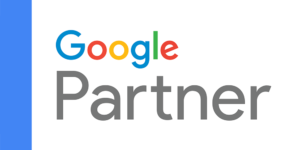As AI-driven search continues to evolve, the digital marketing industry is facing a new debate: Should we keep calling it “SEO,” or is it time for a new term—like GEO (Generative Engine Optimization) or AIO (AI Optimization)?
The conversation may sound technical, but it has real implications for how businesses approach their online visibility. Let’s break down what’s happening—and why sticking with familiar terms might be the best move for now.
The Search Landscape Is Evolving—Fast
AI systems like ChatGPT, Google’s Search Generative Experience (SGE), and Bing Copilot are changing how people access information. These tools don’t just return links—they generate answers. And that shift is leading marketers to explore new strategies for appearing in AI-generated responses.
Naturally, there’s growing interest in naming this approach something new. Terms like GEO (Generative Engine Optimization) and AIO (AI Optimization) have gained traction in marketing circles. But while those names try to capture the shift in search behavior, they also introduce confusion—especially for business owners unfamiliar with industry jargon.
The Problem with New Acronyms
Most business owners already find digital marketing terminology overwhelming. Many don’t fully understand what “SEO” stands for—they just know it’s something that helps their website rank better on Google.
So, when the industry starts introducing competing acronyms—GEO, AIO, LLMO (Large Language Model Optimization), and more—it makes the landscape harder to follow. And if marketers themselves can’t agree on a term, how can clients be expected to keep up?
Why SEO Still Works as a Catch-All
While AI-driven search is different in many ways, the core principles of SEO haven’t vanished:
-
Create high-quality, relevant content
-
Answer customer questions clearly and completely
-
Earn trust through reviews, links, and third-party validation
Optimizing for AI tools is an evolution of traditional SEO—not a full departure. Whether a search result appears in Google’s “10 blue links” or in an AI-generated overview, the foundation is still rooted in good content, technical health, and credibility.
A Changing Practice Doesn’t Require a New Name—Yet
Marketing strategies have always changed with technology. What we call “SEO” today is very different from what it looked like 15 years ago—but the name stuck. It’s become a recognizable term, even if the underlying tactics have evolved.
Introducing a new acronym too early can create unnecessary barriers. It may take years for clients, executives, and the broader public to understand and adopt a new label. Until then, using familiar language helps build trust and reduce friction.
What to Focus on Now
Rather than worrying about what to call it, focus on staying visible:
-
Monitor how your business appears in AI-generated search results
-
Continue investing in traditional SEO best practices
-
Keep your content up to date, helpful, and aligned with what your customers are asking
-
Stay informed about how platforms like Google and OpenAI are incorporating generative search
Final Thought
The digital landscape is shifting—but that doesn’t mean you need to change your entire approach or vocabulary overnight. AI is reshaping how search works, but the goal remains the same: help people find accurate, trustworthy information when they need it.
We may eventually settle on a new term for this next phase of optimization. Until then, sticking with “SEO” might be the most effective way to communicate your value—without confusing your audience.
FAQ
Q1: What is GEO in digital marketing?
A: GEO stands for Generative Engine Optimization. It refers to optimizing content for visibility in AI-powered tools like ChatGPT or Google’s Search Generative Experience. It’s a new term, and not widely adopted or understood yet.
Q2: What’s the difference between SEO and AIO?
A: SEO focuses on improving visibility in traditional search engines like Google. AIO (AI Optimization) is a newer concept focused on helping content appear in AI-generated answers. Both involve similar principles—like relevance and trustworthiness—but apply them in slightly different ways.
Q3: Should I start using the term GEO or AIO with my clients?
A: Not necessarily. Most clients are still more familiar with “SEO.” Introducing new acronyms could create confusion unless your audience is already familiar with these emerging trends.
Q4: Will SEO become obsolete because of AI?
A: No. While AI is changing how search results are delivered, the core need for strong content, clear messaging, and technical optimization remains. SEO is evolving, not disappearing.
Q5: How can I prepare for AI-driven search?
A:
-
Ensure your content clearly answers real customer questions
-
Use structured data where appropriate
-
Keep your online reputation strong through reviews and third-party mentions
-
Follow updates from search engines and AI platforms as they refine their systems


Leave a Reply